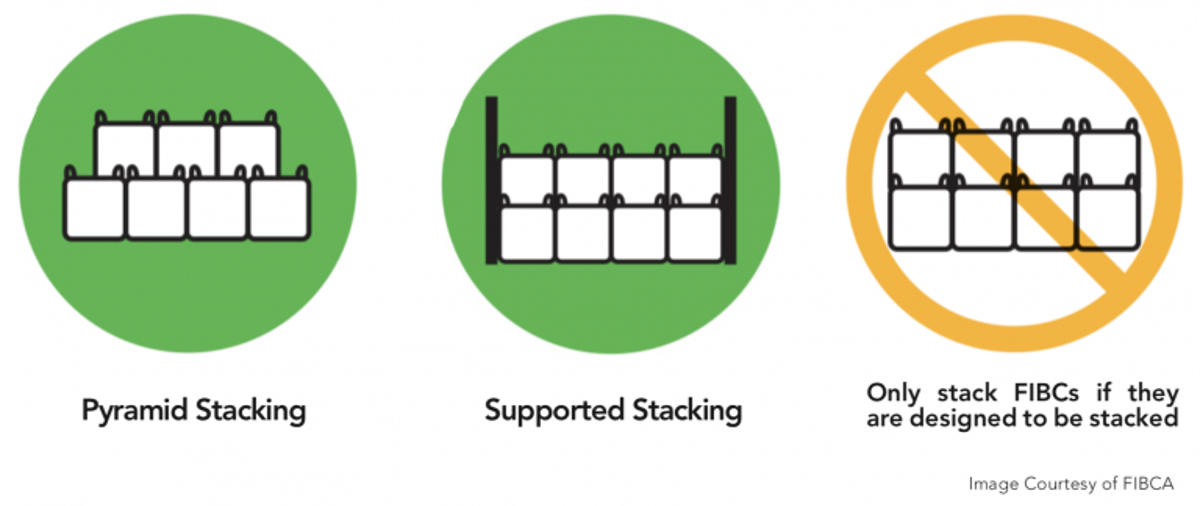UK HSE: worker injured by falling stack of batteries in flexible intermediate bulk containers
- Safety Flash
- Published on 16 April 2024
- Generated on 12 July 2025
- IMCA SF 08/24
- 2 minute read
Jump to:
The UK Health & Safety Executive (HSE) has shared when an employee was severely injured after batteries weighing at least 300kg fell onto him.
What happened?
The UK Health and Safety Executive (HSE) have issued a press release relating to a case where an employee was severely injured after batteries weighing at least 300kg fell onto him. The person was working with two colleagues when he was struck by the batteries. The three workers had been restacking the batteries, which were stored in Flexible Intermediate Bulk Containers (FIBCs), after the stack had toppled over.
However, the FIBCs started to rip in front of them leading to the batteries falling on to one of the workers. He suffered a double compound fracture to his lower right leg, a fracture to the left tibia, a fractured right collar bone, some bruising to his ribs and a cut on his forehead.

What went wrong?
The HSE’s findings were that the site was overstocked, bags of batteries had been stacked in an unsafe manner and there was no specific documented risk assessments or safe systems of work for the correct stacking and storage of batteries. This was not an isolated incident.
IMCA Members sometimes use FIBCs and incidents of this sort have occurred within the membership, which is why this alert is being passed on as a reminder.
Related Safety Flashes
-
IMCA SF 09/18
24 April 2018
-
-
IMCA SF 10/20
17 March 2020
-
-
IMCA SF 05/20
13 February 2020
-
-
IMCA SF 20/20
6 July 2020
-
IMCA Safety Flashes summarise key safety matters and incidents, allowing lessons to be more easily learnt for the benefit of the entire offshore industry.
The effectiveness of the IMCA Safety Flash system depends on the industry sharing information and so avoiding repeat incidents. Incidents are classified according to IOGP's Life Saving Rules.
All information is anonymised or sanitised, as appropriate, and warnings for graphic content included where possible.
IMCA makes every effort to ensure both the accuracy and reliability of the information shared, but is not be liable for any guidance and/or recommendation and/or statement herein contained.
The information contained in this document does not fulfil or replace any individual's or Member's legal, regulatory or other duties or obligations in respect of their operations. Individuals and Members remain solely responsible for the safe, lawful and proper conduct of their operations.
Share your safety incidents with IMCA online. Sign-up to receive Safety Flashes straight to your email.